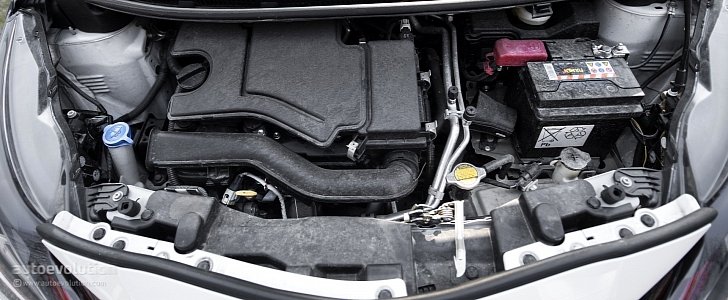In case you haven't been paying attention lately, automakers have been really busy coming up with ways to produce the same power from significantly smaller engines.
Almost all European manufacturer now has a three-cylinder turbo unit in its range, be it a 1.0- or a 0.9-liter, and if they don't have it, then at least they're working on one. Well, their struggle might prove to be in vain as the stricter emission tests carried out on the road instead of a lab will bring out the limitations of these tiny power plants, forcing manufacturers to return to higher displacement engines, Road Show reports.
Ironically enough, the downsizing trend erupted precisely as a means of meeting the imposed regulations regarding CO2 emissions, but after Volkswagen's Dieselgate fiasco, it has become apparent that the testing procedure was flawed, especially in regards to the levels of NOx produced by the engines.
This change could not have come at a worse moment. Manufacturers' budgets are already strained to the limit thanks to the advent of electric powertrains and, in most cases, the development of autonomous technology. In light of the new events, some companies have even expressed their intention of giving up on diesel engines altogether, and we're talking here mainly about Renault, who had some of the best small-displacement units using this fuel type.
The industry has basically been forced to admit that small engines were nothing but a sham, one it had to come up with to meet the ever more stringent CO2 emission levels. By ignoring other polluting emissions completely, solutions such as the one employed by Renault's 0.9 TCe gasoline turbo engine were born: excess fuel was injected to cool the engine down, resulting in unburnt carbon hydrocarbons, fine particles, and carbon monoxide.
Hybrid technology will undoubtedly play a very important part in tomorrow's cars, but we can't expect the smaller segments and the affordable brands to benefit from it right away. They will have to find different solutions, and it looks like slightly bigger engines that can offer the same performances in a more relaxed way are the way to go.
Some of the developments made during this period will surely benefit the manufacturers in their future endeavors, but given how they are returning to the previous status quo now, you can't help but feel all this time was a bit wasted.
Ironically enough, the downsizing trend erupted precisely as a means of meeting the imposed regulations regarding CO2 emissions, but after Volkswagen's Dieselgate fiasco, it has become apparent that the testing procedure was flawed, especially in regards to the levels of NOx produced by the engines.
This change could not have come at a worse moment. Manufacturers' budgets are already strained to the limit thanks to the advent of electric powertrains and, in most cases, the development of autonomous technology. In light of the new events, some companies have even expressed their intention of giving up on diesel engines altogether, and we're talking here mainly about Renault, who had some of the best small-displacement units using this fuel type.
The industry has basically been forced to admit that small engines were nothing but a sham, one it had to come up with to meet the ever more stringent CO2 emission levels. By ignoring other polluting emissions completely, solutions such as the one employed by Renault's 0.9 TCe gasoline turbo engine were born: excess fuel was injected to cool the engine down, resulting in unburnt carbon hydrocarbons, fine particles, and carbon monoxide.
Hybrid technology will undoubtedly play a very important part in tomorrow's cars, but we can't expect the smaller segments and the affordable brands to benefit from it right away. They will have to find different solutions, and it looks like slightly bigger engines that can offer the same performances in a more relaxed way are the way to go.
Some of the developments made during this period will surely benefit the manufacturers in their future endeavors, but given how they are returning to the previous status quo now, you can't help but feel all this time was a bit wasted.

